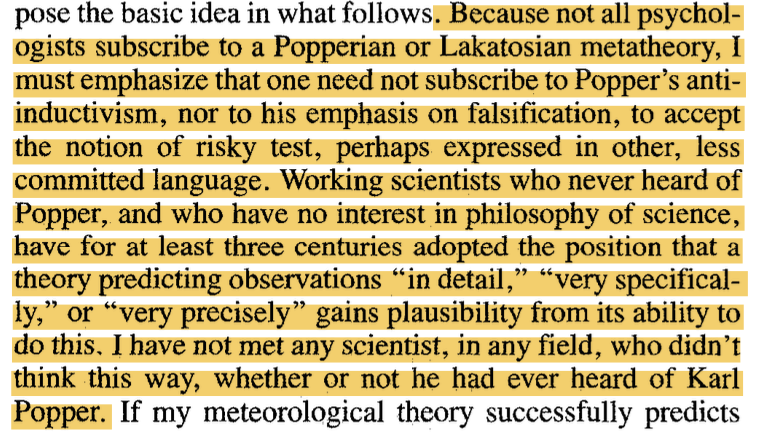
Constantin Späth @cspaeth.bsky.social
@constantinspath
Sport and Exercise Psychology, University of Potsdam, Germany
ID: 1517124450961043457
21-04-2022 12:53:57
360 Tweet
28 Takipçi
60 Takip Edilen

Sometimes you need a carrot, sometimes you need a (small) stick. Journal of Sports Sciences we've introduced a mandatory sample size estimation and justification section to manuscripts. The rationale is outlined in the editorial. Editorial tandfonline.com/doi/full/10.10… IFA tandfonline.com/action/authorS…







Very excited to publicly share news about a new tool, Papercheck, that Lisa DeBruine and me started to develop more than a year ago! In an introductory blog post, we explain our philosophy to automatically check scientific papers for best practices. daniellakens.blogspot.com/2025/06/introd…


Sichu Lu([email protected]) TracingWoodgrains Mixed feelings. In practice he is right. The big problems are as follows: - people who conduct meta-analyses are often not meta-analysts so they haven’t a clue what they are doing or how to interpret anything. - I think there is a fundamental misalignment between what readers


While individualism and isolated work remain common in #academia, coordination offers substantial benefits. This Comment urges systemic changes from all stakeholders toward more coordinated #science. Sajedeh Rasti Daniël Lakens nature.com/articles/s4156…


Marcus Munafò Thanks for trying! It is still amazing how slow the uptake of equivalence testing is, given that it is just a 90%CI of the same test you ordinarily do, but against a smallest effect if interest. Yes, setting it is a challenge, but important enough to spend some time on!





